How To Buy The Best Solar Panels For Your Home
Being the director of a solar company, I get asked this question almost every day.
Which solar panels are the best for my home?
How can I decide which solar panels are best for my home?
What are the things I need to consider when buying solar for my home?
Solar panels can be purchased and installed for a variety of different reasons. To work out what solar panels will be best for your home, you will need to understand a few things first.
We are going to run you through our exact consultation we go through with our customers to help them choose the best solar panels for their home. Here you will learn exactly which solar panels are worth it for YOU.
Table of Contents
Is Your Home Ready To Install Solar Panels?
Solar panels can be purchased and installed for a variety of different reasons. To work out what solar panels will be best for your home, you will need to understand a few things first.
So, I’m going to be taking you through the process that we would go through with a homeowner who has just requested a solar proposal from us. There are some areas you might need to consider more than others.
Please remember, I can’t stress this enough… Each homeowner is different. Every home is different. Every roof is different. There is no cookie cutter (one size fits all) approach to solar. To genuinely maximise the benefits you can see from solar panels you will need to design a system that’s unique to your home.
Ok, so with that being said let’s begin the process of the solar consultation. Firstly, you will need to make sure your home is solar-ready. What do I mean by this? Well, making sure that your home is able to benefit from solar panels.
Now, interestingly enough you shouldn’t give up if you think your home is too small or has too much shade. Simply because, technology these days is so advanced that you can overcome the biggest design issues. This is where the help of a professional comes in.
How big is your roof?
The bigger the roof, the bigger the solar system. The smaller the roof, the more design issues you might have to overcome. As I mentioned above, fortunately these days there are technologies that can overcome any issues such as SolarEdge panel optimisers.
Either way, you also want to be thinking into the future here. If you have a big roof it’s best to install a system bigger than what you currently need right now. Yes, I know you might be thinking BS but let me explain why.
We have customers who are ripping off old systems and installing bigger ones because their energy use has tripled 5-10 years ago. Think about it, 5-10 years ago we didn’t have smartphones, laptops, smart TV’s, blenders, air fryers and all these extra electrical appliances. They were not all plugged in at once.
We’re now at an age where our energy consumption has never been higher due to the digital advancements we are making. Now think about the future in 10 more years. We will be consuming double the rates of energy because everything is moving online and towards electrical advancements.
What shape is your roof?
The shape of your roof will determine which solar panels you need to buy for some homeowners. For example, if you have a tricky roof with lots of ledges, shading issues and bedroom windows you will require panels with micro-inverters which will give you a flexible design.
This means you will be able to place panels in areas which normal string PV technology won’t allow. The benefits is that you can seriously maximise your roof space to get the most power from your system. However, it does mean that you will need to look at advanced technology like Enphase micro inverters and energy systems.
You won’t be able to place a row of panels on a string system for roofs without a lot of space or a unique design. So certainly the shape of your roof is important when considering the best solar panels for your home.
What direction is your roof facing?
The direction of your roof is considered very important because it will be the same direction the solar panels will end up facing. Although consider, what time of day do you use the most energy. If it’s in the afternoon, you may consider placing some solar panels in the areas where the sunshines after 2-3pm.
This will maximise your energy output and require a specific kind of solar panel that can allow for a flexible design again. You may also want to consider solar panels that absorb more light or use anti-reflective properties to maximise your energy output as well. Looking into bifacial solar panels might be an option for you as well.
How old is your roof?
Don’t forget, roofs will weaken with age. If you know that your roof is very old then you might want to consider some smaller, more lightweight solar panels. However, I might admit if you are looking for a high return from your system it’s best to replace the roof so both panels and roof will last over 25 years.
It’s not the most important, but it’s definitely something you should consider. Now, I know that unless you’re an experienced roofer or a solar design engineer, how will you be able to tell if your roof is weak, old or unique in shape?
The truth is, your best option is just to get help from a solar expert. A site engineer can come out to your home and do an inspection. With the information, the solar engineer will then be able to go and design the right system for your home. When it comes to stuff like this, I wouldn’t suggest designing your own system because it is best left in the hands of engineers.
Don't forget about the inverter position & cables...
Coming from an experienced solar installer. One of the most annoying issues we have to face is positioning the inverter close enough to your main switchboard and to your solar panels.
This means we need to make sure all the cables can run from the inverters to your solar panels for PV systems. Long cable runs may make your solar system less efficient as well.
If you have a system with micro-inverters its still the same, we need to make sure that your system can be wired to your home to use the electricity.
If your home has a unique shape then this is something you must consider. The same applies if your switchboard is hidden or not easily accessible. It’s something you will need to consider before buying solar panels.

Once you have a good understanding of whether or not your home is solar-ready, you can move to the next stages of buying the best solar panels for your home. These focus on your personal requirements for solar panels and how this will affect choosing the best ones for you. Feel free to read this awesome consultation checklist to help you further.
Your energy bill is important because it will help you understand what size, and how efficient your system needs to be.
Below you will learn how to consider your energy bill. It may mean that you are forced to spend more on efficient solar panels or you may need to spend less. Let’s find out!
Ok, The Next Step Is To Understand your electricity bill…
Another area to consider is your energy bill. One of the biggest reasons people move towards solar is to produce their own energy and generate savings. So therefore, you should aim to create a system based around your energy requirements, this will help maximise your savings and energy output.
How much do you spend on your energy bill each month?
Possibly one of the more important factors in buying the right solar panels. Don’t worry, I’m going to completely break it down for you so it’s easy to understand. Ok, so when you know how much energy you are consuming each month you want to take the monthly average over the past 3 years.
With this monthly average, divide it by 30.5 (average number of days in a month) and this is how much energy you are going to need to produce every day if you want to eliminate your energy bills.
Therefore, if you have a high monthly average I would suggest looking into some powerful panels that are big and able to produce a lot of energy. For example, Jinko 440w panels can build you a nice big system to provide a long lasting return on investment.
Of course if you have a smaller bill or you’re just looking to slash the cost of the bill you can take a look at some other panels like Sunpower Performance 3.
It’s just important to remember that you need a system big enough to take a dent in your energy bill. There isn’t much point in getting solar panels unless they are making a good enough impact on your energy bill & on the environment.
To summarise, make sure that you are getting solar panels that are big enough in size to create a system that is big enough to make an impact on your energy bill (PS. Remember to future proof your system as well).
What time of day do you use the most energy?
Sometimes this gets overlooked. Not by our solar engineers though. If they are designing a system, they want to maximise the energy production and savings. Therefore, considering the time of day is extremely important. This is because the sun will be shining at its peak at different angles at different times of the day.
The sun rises in the east and sets in the west. So, if you use more energy in the afternoon it’s best to get solar panels which can be powered individually and place some panels on the west side of your roof to capture the last rays of the afternoon sun.
When you are designing the system with the engineer, you can consider this factor. The same applies for early mornings. This extra placement can really help maximise your self consumption which will increase your savings and return on investment in years to come.
So, to summarise when you consider the best solar panels you should also factor in the time of day when you use the most energy. This will allow you to design a system tailored around your energy usage. You will need certain panels to maximise your design.
Where do you use the most electricity in your home?
Homeowners should also look at where they use the majority of their electricity. This will give you a better understanding of what solar panels are best for your home.
Standard PV solar panels can power anything electrical in your home, from your TV, fridge even your gaming consoles. If this is where most of your electricity is being spent then you know a string inverter system is best for your home.
However, if you find that most of your electricity is being spent on your heating then you may need to start looking into thermal solar. It would be a waste of money if you installed solar but used all of your energy per month on heating.
Understanding your electricity bills is one of the most important steps in buying the best solar panels for your home.
What size solar system do you need?
Typically, to work this out its a combination of both your energy bill, and the size of your roof. On average in Australia, a home will use around 20kWh.
However you may find your home uses more. If so, then you will require a bigger system. As long as your roof will can fit these extra panels, then its best to go big.
This table should help you work out what size solar system you will need to slash those horrible energy bills.
| CITY | 4k/w system | 5k/w system | 8k/w system | 10k/w system |
| Melbourne | 14.4kWh | 18.5kWh | 29kWh | 36kWh |
| Brisbane | 16.8kWh | 21kWh | 37kWh | 42kWh |
| Adelaide | 16.8kWh | 21kWh | 37kWh | 42kWh |
| Perth | 17.6kWh | 22.4kWh | 37kWh | 44kWh |
| Sydney | 15.6kWh | 19.8kWh | 33kWh | 39kWh |
| Darwin | 17.6kWh | 22.7kWh | 37kWh | 44kWh |
So, hopefully now you have a good idea of what size solar system you are going to need for your home.
Next up is budget.
It’s funny because not many people really consider anything else when they buy solar. They just want to focus more on the price of the solar panels, and forget ‘why’ they are actually buying them.
Regardless, here is how to work out the best budget for your solar panels system.
What solar panels fit within your budget?
These are obviously the best to go for. I mean, it’s like when you buy a house or a car… When you invest more, you get something better and nicer.
Of course, these days you don’t really want to be investing in a system that is going to last less than 25+ years. You also don’t want to be adding or replacing your system for a bigger one in years to come.
Future Proofing your system early on is a must. With a higher budget, you have more available money to invest and therefore, you will end up seeing a larger return on investment over time.
High end systems tend to provide the best returns for the longest time possible. Usually they will last over 25+ years (still covered by warranty) and provide returns many years after that. You are also paying for a more advanced system that can allow for flexible designs and high performance.
So, here’s a list of the most popular high end solar panels that we recommend to homeowners in Australia.
Smaller budgets would be a great start for a string inverter system. These systems are great and are the most common systems in Australia.
They will help slash your energy bills and if your system is big enough, potentially reduce it altogether. Smaller systems are lightweight and can be installed into tighter roof spaces, making the site design easier and faster.
Good budget systems have a range of different benefits as well. They are more affordable, last a long time and don’t require much maintenance at all. String inverter systems are the perfect starter system for those who want to move towards a greener, cheaper future.
The only downside, I’d say, is that you cannot extend your system from years to come. I think this is going to be a huge factor because as I’ve seen over the past few years a lot of customers are replacing old systems with much bigger ones because the amount of energy they are using has increased with all the new devices, technology and stuff.
If you are on a budget, make sure you consider the future and the size of your system so it doesn’t turn out to be a waste of money.
Here’s a list of all the good budget systems we recommend to Australian homeowners.
Are you looking for a solar battery system as well?
Again, something to think about is if you will be investing in a solar battery at any point in the future. Of course, solar batteries come with so many benefits and are increasing in demand every year.
Having access to a battery that allows you to store your energy means you can maximise your savings and take advantage of a much longer return on investment. You can also become virtual power plant ready.
There are some fantastic battery options available such as the Tesla powerwall 2 (You can read my full review here). Also, Sonnen makes an amazing Australian made battery which is very popular and one of the industry’s best.
However, you will need to ensure that you are getting enough solar panels, or big enough panels that create a big enough system to charge your solar battery. Making sure that the battery can get charged is important and it helps with the return on investment.
So, to summarise ensure that you are getting a big enough system to be able to charge your battery and reap the full benefits. If you cannot fully charge you may be missing on our savings.
Do You Plan On Moving Home In The Future?
Look, it’s hard to say what anyone is doing in the future. However, if you feel like you are going to move then you may want to consider a smaller, more affordable system to provide 5 years of solid ROI.
On the other hand, if you love your home and know you’re going to be staying then I would never suggest looking for a fast return. I’d always recommend getting a system that is going to last 25+ years and provide you with savings for that long as well.
Getting a good system for your home that is future proof is extremely important. Therefore, you should consider how much energy you are using now vs 10 years ago. Due to all of the new, bigger phones and laptops we consume a whole lot more energy.
Just remember, in 10 years we will probably be using a whole lot more energy so prepare yourself for that with a system that is big enough.
Either way, if you are not moving home in the future it’s best to consider a really good solar system. After all, your home is your biggest asset? Why not increase it’s value by giving it a really good solar system?
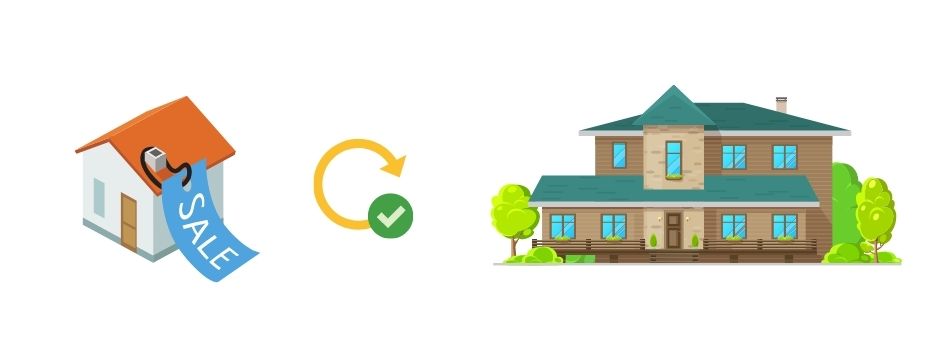
Why are you installing solar panels?
Ask yourself, what is the main reason why I am looking to install solar panels? Everyone is different. However, your goal towards going solar will factor into which solar panels you will need.
Are you installing solar to slash your energy bills?
If you are looking to reduce the cost of your power bill each month then it would be sensible to look into a low cost, good budget system. There wouldn’t be much point in you investing in a solar battery and high-end system if you are just looking for a monthly saving.
Wanting to sell energy back to the grid?
For those people who have the goal of being able to sell the power you produce back to the grid, you will need a much more efficient system to maximise on profits.
You will need to be looking at high-end systems (like we mentioned above) to produce the most power from the solar panels during the day and sell that power during peak times.
Looking to becoming energy independent?
Becoming independent from the grid will be a big reason why people install solar. If this is you, then an all-in-one system would be the right fit for you.
Additionally, you could look into some good budget solar panels and install a solar battery as well.
Focused on doing it for environmental reasons?
You may be installing solar to fight back against the climate crisis and help by becoming environmentally friendly.
Any solar panel system will help the environment and allow you to become eco-friendly. We suggest looking to your budget to see what you can afford.
Are there any solar rebates you can claim?
In Australia the government has a program which helps homeowners with the upfront costs. There are many different incentives or programs across each state but they all help reduce the costs of solar panels.
In Victoria there is the Solar Homes Program which provides homeowners with a massive $1400 off the initial cost of solar panels & installation.
Whereas in Queensland, the government will give homeowners STC’s (Small Scale Technology Certificates) which they can later sell for a large sum of cash.
Interest-Free Loans For Solar
You will be able to claim an interest free loan from the Solar Victoria program. This can really help homeowners with the upfront cost of solar. You will never be out of pocket and of course the return from the system will help you pay off the loan quickly as well. The loan is for the same amount as the solar panel rebate which is $1400 as of today. With this extra cash, you may consider investing in a higher end system.
Solar Battery Rebates
Now we also have battery rebates available for homeowners looking to invest in a solar battery. Before, this was really tricky to get but they’ve since made it much easier and it’s taken off pretty well. You can claim up to $3500 for the cost of your solar battery and get this paid back by the government. However, you can only claim the battery OR the panel rebate. Not both. This rebate might help in getting a system that is big enough to charge your battery.
STC's (Small-Scale Technology Certificates)
Small-Scale Technology Certificates are also provided by the government for homeowners who have installed solar panels.
STCs are essentially a credit for the system you have installed which you can later sell for a large sum of cash. It’s easy to look at STCs like they are ‘shares’ that you hold and can sell.
They will range in value dependent on the size of your system, how much energy it produces and what type of system it is e.g. thermal solar, solar PV.
Do You Have An Electrical Vehicle Or Going To Buy One?
Now that we are quickly moving into the 21st century, electric vehicles are exploding with demand. They will not only save you money on petrol, but they will also increase your return on investment from your solar and battery systems.
Even without a battery, you can use your car as the battery. Store and fill up your car with all the energy you are producing from your solar system. This massively increases your roi because you are driving on free energy.
However, similar to a battery you need to ensure your system is big enough to charge your vehicle whilst still powering your home. Your self consumption needs to be met with a big system that can power your home whilst charging your car.
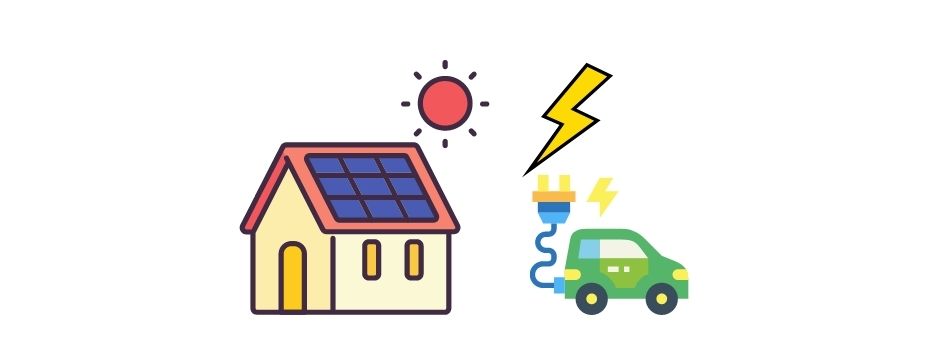
Share With Your Friends!
Written By:
Luke Cove
Managing Director
Lightning Solar & Electrical

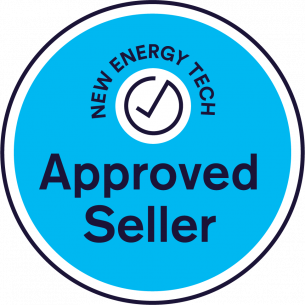
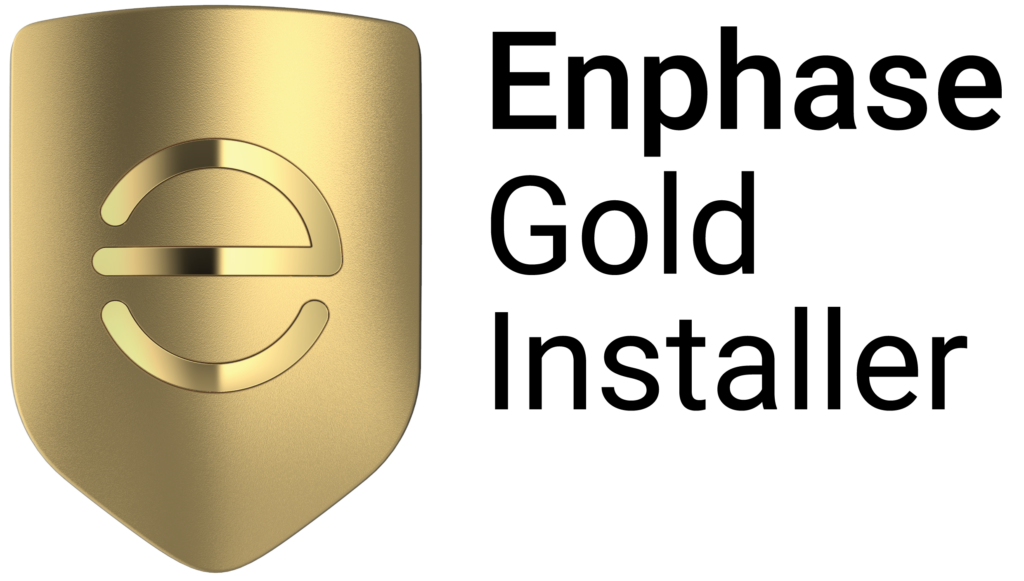
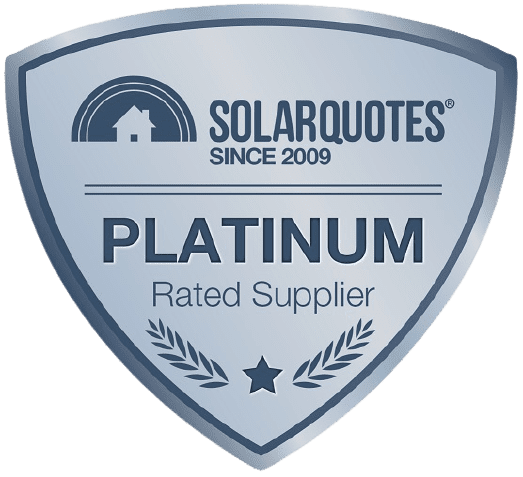
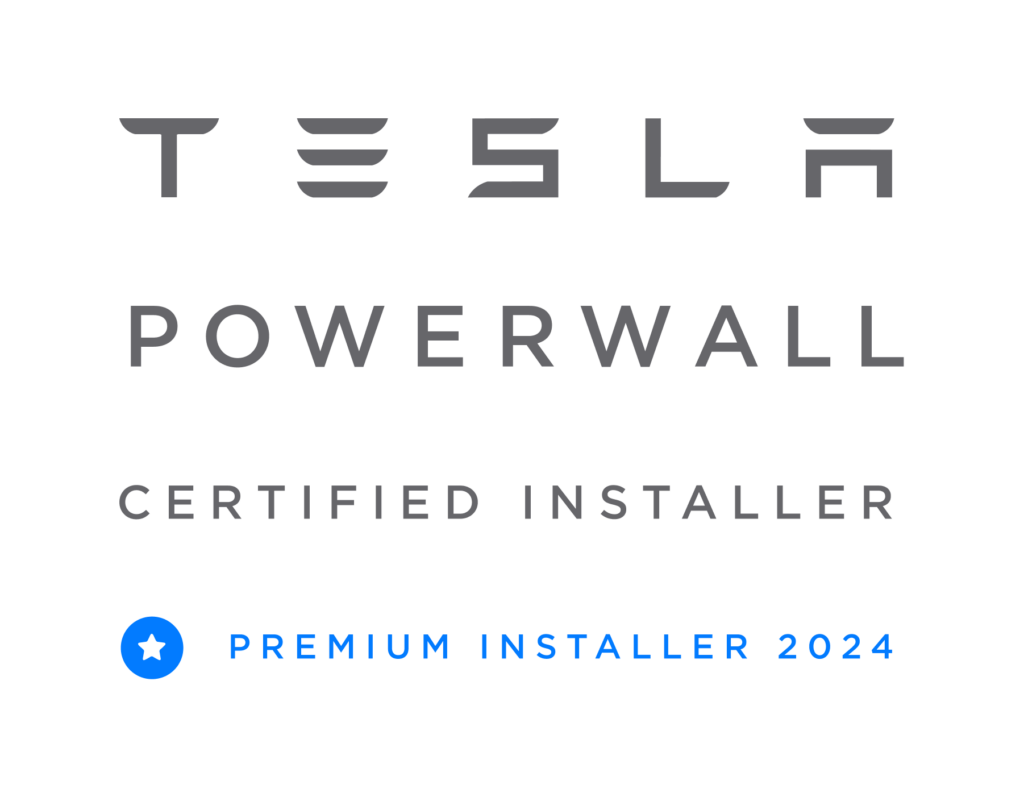












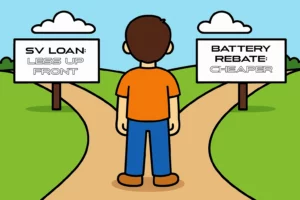
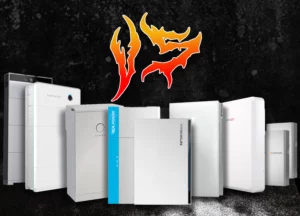
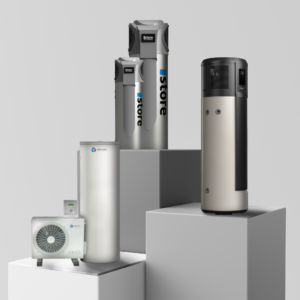
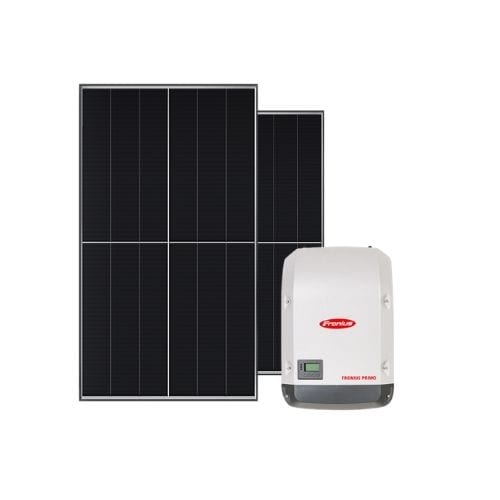
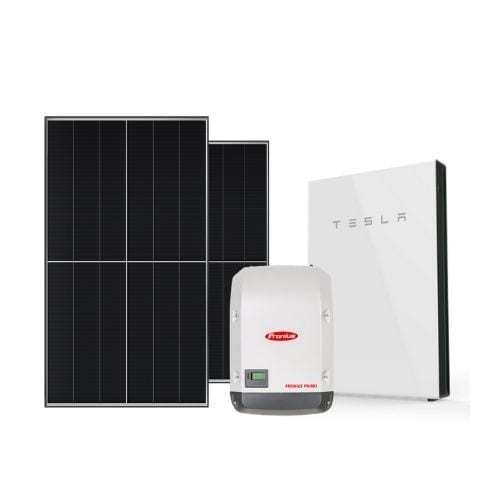
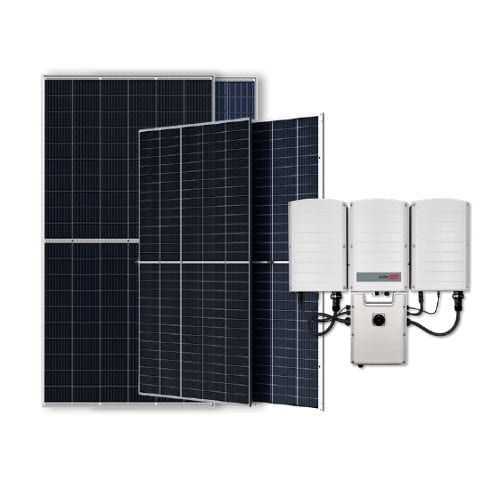
2 thoughts on “How To Buy The Best Solar Panels For Your Home”
Install a solar system and save as much as 50% off the cost of electricity.
Hello!! Love the blog. Thanks for sharing. At Astral Solar, we believe and promote using natural solar energy to enlighten residential and commercial space.
http://www.astralsolar.com.au